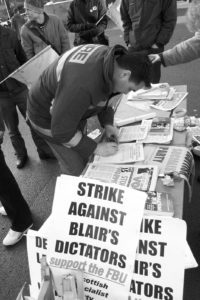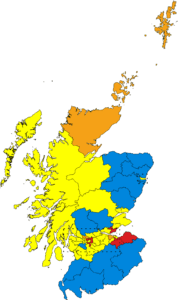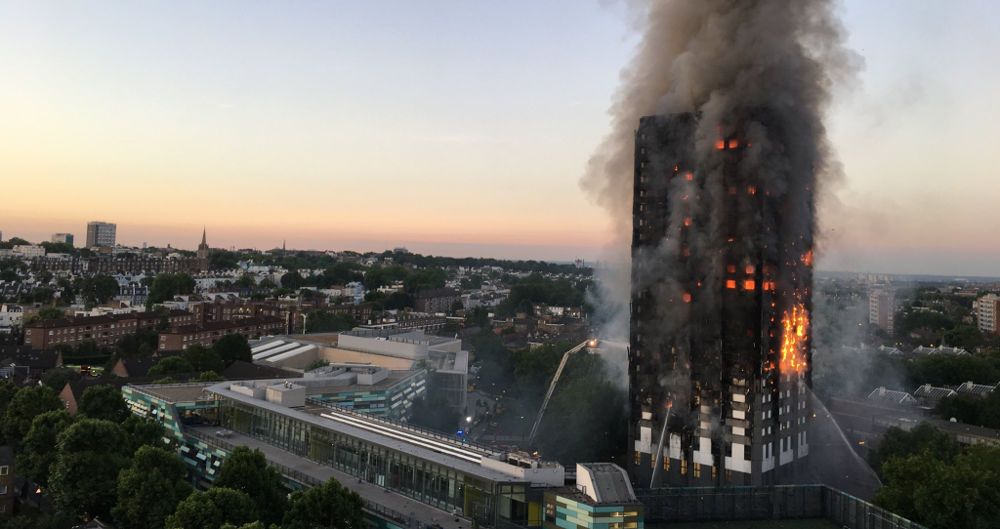 by Ken Ferguson
by Ken Ferguson
Like a searchlight in the night sky, the ghastly flare of Grenfell Tower caught and held the brutal reality of the human consequences of the austerity cuts which were designed to protect the interests of the rich elite — many with a fabulous mansion in the same borough — at the cost of workers and the poor.
The human horror of terror and death which resulted defies words in its enormity and our hearts go out to the dead and its survivors.
As we mourn the dead and traumatised of this disaster, we need to be entirely clear that this was no act of nature but had, as will emerge over the weeks ahead, its source in human made decisions taken against a policy background of deregulation, spending cuts and reductions in vital services.
The brutal reality is that such policies don’t impact on Kensington and Chelsea’s wealthy, but on the ordinary citizens such as Grenfell’s residents.
30-year war
 The last 30 years have seen a right wing driven assault on social provision, pay, services and safety and all forms of collective provision. In this, they have been ably assisted by the Tory tabloids such as the revolting Mail and reviled Sun.
The last 30 years have seen a right wing driven assault on social provision, pay, services and safety and all forms of collective provision. In this, they have been ably assisted by the Tory tabloids such as the revolting Mail and reviled Sun.
Stories of benefit scroungers, health and safety gone mad, “floods” of immigrants and holiday camp prisons are the bedrock of this relentless campaign but it has also spawned a sub culture of TV from Benefits Street to talk shows underpinned by assumptions that everybody on benefits is scrounging.
And this narrative did not emerge from thin air but was crafted by well-dressed policy think tanks and sold to politicians eager for power. The result? Industries such as energy and rail privatised and turned into pound note printing presses for private firms.
Unions are legally shackled to prevent workers’ fight back while regulation on vital service such as fire safety was diluted.

Again let there be no mistake this wasn’t an act of nature but the consequence of deliberate policy decisions at the heart of government taken with the benefit of advice from the finest brains trained at Oxford and Cambridge on the outcome. Put bluntly, they knew what they were doing, they knew that people would face destitution and hunger, they knew that claimant harassment would conscript people into zero hours jobs on poverty pay.
As they cut fire services they knew that reduced inspections spelt raised fire risks and police cuts aided the criminals. A quick google search provides an avalanche of evidence from the mouths of political leaders — Labour and Tory — from Johann Lamont to George Osborne—of how they bolstered this cruel regime which has resulted in today’s young being the first generation in 100 years to grow up poorer than their parents.
Even supposedly safe Tory voters among seniors have cause to revolt at planned May cuts in their benefits. All this was known before the general election and issues such as the fury around the rape clause and the acclaim of the exposure of benefits cruelty by Ken Loach’s I, Daniel Blake were clear portents of this.
May’s borrowed time
Already struggling to cling to power in the light of the election rebuff, Theresa May, who has taken a hammering for her handling of the Grenfell tragedy and a desperate deal with the ultra reactionary DUP, now looks to be living on borrowed time at No 10.
Of course, the election result has also thrown up big questions for both those opposing the weakened Tories and supporters of independence. They need to reflect, analyse and act to win their aims. First the positives.
[x_pullquote type=”right”]Scotland presents a more complex picture[/x_pullquote]The high octane campaign led by Jeremy Corbyn armed with a progressive manifesto—certainly by New Labour standards—shifted the ground of political debate to the left and produced a climate in which socialist ideas are an option.
While readers will universally cheer the destruction of the arrogant May’s majority and the vindication of Corbyn over his treacherous Blairites, Scotland presents a more complex picture. Despite the much-hyped advance of the Scottish Tories which has effectively kept May in office and ousted big SNP figures, it is the loss of 21 SNP seats which is the big story alongside the revival of the near corpse of Scottish Labour. Not just winning seven seats but run the SNP close in a clutch of others.
For the Scottish media, the answer is simple: all the unionist parties centred their campaigns on opposition to a second independence referendum, therefore, given the SNP defeats, both a second referendum and more widely independence itself are now off the political agenda. However, for the pro-independence left, this is a partial picture which needs both a more thorough examination and, flowing from that clarity on what needs to be done to retake the initiative, lead the fight back against further Westminster attacks and reinvigorate the independence movement.
For Scottish Labour’s right wing leaders to portray their gains as an endorsement of their policy playing support act for the Tories anti-referendum pitch look wide of the mark with the reality that their advances had more to do with the excitement of the radical Corbyn programme. In turn, the utter timidity of the SNP’s weak as water “stronger for Scotland” campaign gave little reason for left voters—many of them Yes supporters—to back them and thus was only made worse by the SNP’s desertion of the independence case.
Bitter consequences
As the SSP argued during the campaign, the need was to make this the independence election backed with a raft of popular policies on £10 an hour pay, end of zero hours contracts, action on the big issues such as public transport and housing and so on.
[x_pullquote type=”right”]The emphasis must be on advancing practical proposals aimed at winning Scotland’s working class majority to the independence cause[/x_pullquote]Of course, that isn’t what happened and one of the most bitter consequences is that the advances scored by the Tories are now the only reason — without the DUP — that May is still stroking the Downing Street cat and not out of power. The days ahead will be complex and testing but the evidence is that Scots voters still heavily favour radical answers to the problems they face. They may have reservations about the timing of a second referendum but they have not — despite unionists fantasies — turned against independence.What must happen now is the waging of a relentless campaign to defeat further Tory attacks and expose Davidson and company as the allies of the Westminster hardliners. And if independence is to be won then the emphasis must be on advancing practical proposals aimed at winning Scotland’s working class majority to the independence cause.
This, not the timing of indyref 2, needs to be the central concern in the weeks ahead.
This is an editorial previously published in issue 496 of the Scottish Socialist Voice.
Main Photo by Natalie Oxford, CC BY 4.0
